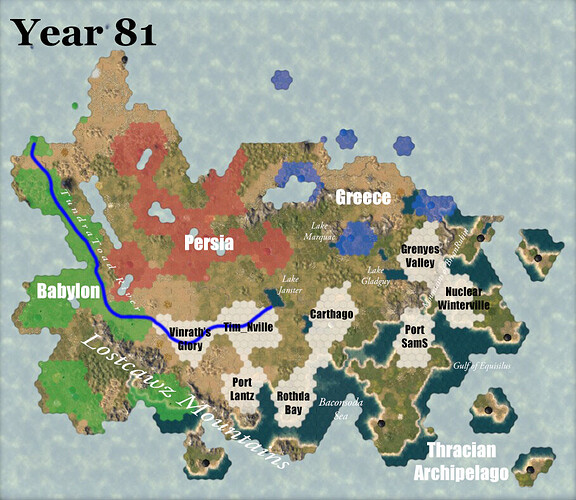I hope Queen Sinnick has a poster making mission at some point.
Pyrhic could be a Victory.
As my latin teacher used to say, a bigamist ain’t just a large fog over Italy!
So you’re throwing away our family fortune on booze rather than ensuring the success and welfare of future generations?!
[looks at O’Malley family history]
…checks out.
Hah! You had me refreshing thinking my 4G was acting up
The party is still going! It’s a doozy!
-Tom

Here’s a teaser for what I’m currently doing:
As you can tell, seriously subpar Photoshop skills, but I’ve got heart!
-Tom
Your writer skills show in the topnotch selection of fonts.
Must be one hell of a party.
Dude, that party never ends, does it?
Nice poke!
Oi! I am unfamiliar with this game and this thread. Get your own poker!
This is an incredibly educational (and entertaining) thread. Thank you! (And also tossing my name in to the character hat :D)
For a long time, historians struggled to explain Carthago’s collapse. A thriving civilization, maintaining a complex network of political and cultural ties with neighboring empires, disappeared from the historical records seemingly overnight. Documents from Babylon or Persia simply don’t mention Carthago after a certain date, Material evidence no longer appears in archeological digs. 18th century writers suggested the cause was simply “decadence”. Modern historians sought a material explanation, offering theories about changing climate, invaders from the sea, or depletion of the sea snail colonies that were apparently crucial to the economy.
Recently, however, an old manuscript discovered in an Italian monastery and purporting to be a copy of the writings of an ancient chronicler (whose name was anachronistically given as Thomas) have offered a new explanation. At first it seemed absurd, perhaps written as cautionary tale by a medieval monk. As the chronicle was studied further, historians had come to reluctantly accept its veracity, and its account of Carthago’s glorious last days.
We now know Carthago never collapsed at all. They were just partied out.

